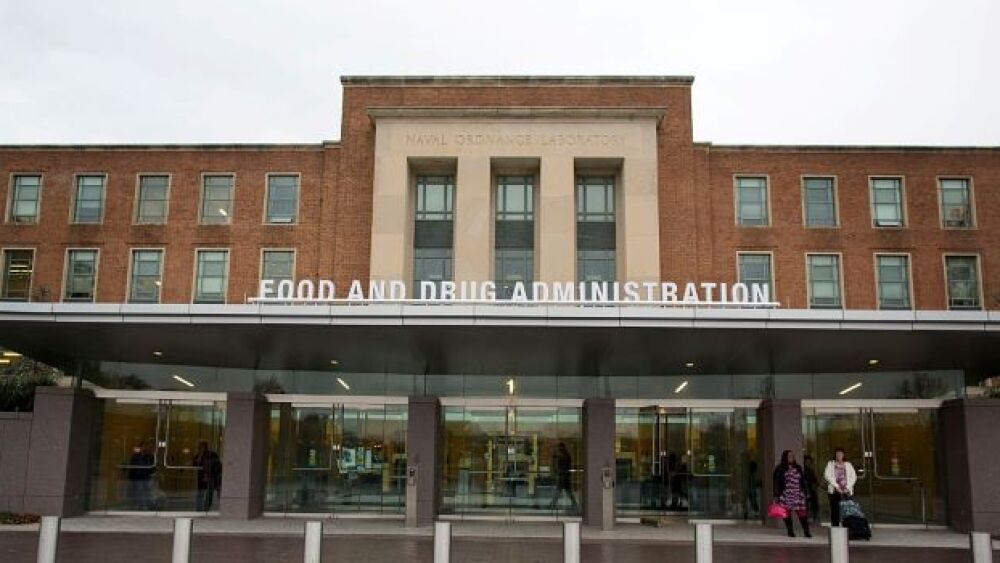Emory University’s Ken Thorpe told BioSpace that the average Medicaid spending on drugs approved under the accelerated pathway in relation to total Medicaid spending is.2%.
Courtesy of Al Drago/CQ Roll Call
The U.S. Food and Drug Administration’s accelerated approval process has faced intense scrutiny over the past several months, with concerns ranging from a failure of drugs to live up to early clinical promise to the high cost of these drugs for government insurance programs, particularly Medicaid.
There have been multiple efforts to limit the use of the accelerated approval pathway due to concerns over safety and efficacy, as well as cost.
The History and Rationale
The accelerated approval program was put into place by the FDA in order to allow some investigational drugs aimed at serious medical conditions that fill an unmet medical need to receive the green light based on the achievement of surrogate endpoints in clinical trials. Those drugs can be brought to market early under conditional approval, while their sponsoring companies continue to conduct clinical studies to confirm the anticipated clinical benefit. If the trials are successful, the FDA will award the drug traditional approval but if the studies fail to meet clinical endpoints, the regulator can remove the drug from the commercial market.
Recently, some drugs approved under this process have come under the proverbial microscope. In the spring of 2021, the FDA’s Oncologic Drugs Advisory Committee reviewed drug products approved under the pathway for breast, urothelial, gastric and hepatocellular cancers. The committee examined Merck’s Keytruda (pembrolizumab), Bristol Myers Squibb’s Opdivo (nivolumab) and Roche’s Tecentriq (atezolizumab), which are all checkpoint inhibitors approved under the accelerated approval pathway. The FDA committee called the meeting after these drugs had been withdrawn for use in other indications.
Since it was established more than 30 years ago, driven by the need for HIV treatments, there have been 270 drugs authorized under accelerated approval.
Bringing these drugs to market early can benefit many patients who are in desperate need of new, cutting-edge therapies for their illnesses, including different forms of cancer or rare diseases. But, over the past several years, there have been concerns raised about some of the drugs that entered the market through this program. In particular, criticisms have been aimed at companies that do not complete those post-marketing confirmatory trials required by the FDA or do so only after significant delays.
Accelerated Approvals Account for Less than 1% of Medicaid Spending
There are also concerns raised by state governments, such as Oregon, that the financial costs of these medications authorized under accelerated approval are too high for Medicaid to cover. Earlier this year, Oregon sought to limit coverage of these drugs under the program. State authorities sought to exclude drugs authorized under accelerated approval that have “limited or inadequate evidence of clinical efficacy,” as determined by a review, The Commonwealth Fund reported.
Oregon isn’t alone in seeking to limit coverage of accelerated approval drugs. Massachusetts, the home to the nation’s top biopharma hub, requested that the Centers for Medicare and Medicaid Services (CMS) waive Medicaid drug coverage obligation for these medicines. These states made claims that they are financially too costly, which burns through funding for Medicaid at an accelerated rate. But those claims are specious, Ken Thorpe, chair of the department of health policy and management at Emory University and chairman of the Partnership to Fight Chronic Disease told BioSpace.
“States are complaining about the financial impact of these drugs on Medicaid spending but it has virtually no impact,” Thorpe explained.
Addressing some of the saber-rattling claims about the costs of medication, he said the assertions that drugs granted under accelerated approval are escalating Medicaid costs have no evidentiary support. Following an analysis of Medicaid data from all states, Thorpe said accelerated approval medicines accounted for well below 1% of Medicaid spending. Looking at CMS data for the year 2020 for each state in the Union, Thorpe said the average Medicaid spending on drugs approved under the accelerated pathway in relation to total Medicaid spending was .2%. A full breakdown of state Medicaid expenditures as it relates to Medicaid spending can be found in a blog posted by Thorpe at Health Affairs.
“From a policy standpoint, we’re looking at the wrong areas. If we’re concerned about Medicaid costs, this isn’t it,” he said. “The focus is misguided. This just isn’t worth the time.”
Invaluable Despite its Faults
There are more legitimate complaints about accelerated approval drugs, such as the length of time to conduct confirmatory trials from some companies, Thorpe noted. While the accelerated approval pathway may have some faults, such as those addressed by Rick Pazdur, director of the FDA’s Oncology Center of Excellence earlier this year, Thorpe said it’s an important tool for the regulatory agency to maintain in its arsenal.
“This gets medications to patients who may have rare and serious diseases faster than they would get through the traditional treatment options. It clearly plays an important role in providing medications where there are few options,” he said, noting that drugs do not receive accelerated approval unless clinical results are evident using the surrogate endpoints required by the FDA.
“Without it, many patients would have few options. The impact on Medicaid budgets is trivial,” Thorpe said. “If you eliminate it, you’ll eliminate hundreds of drugs. There’s no clinical or financial reason to do that.”






